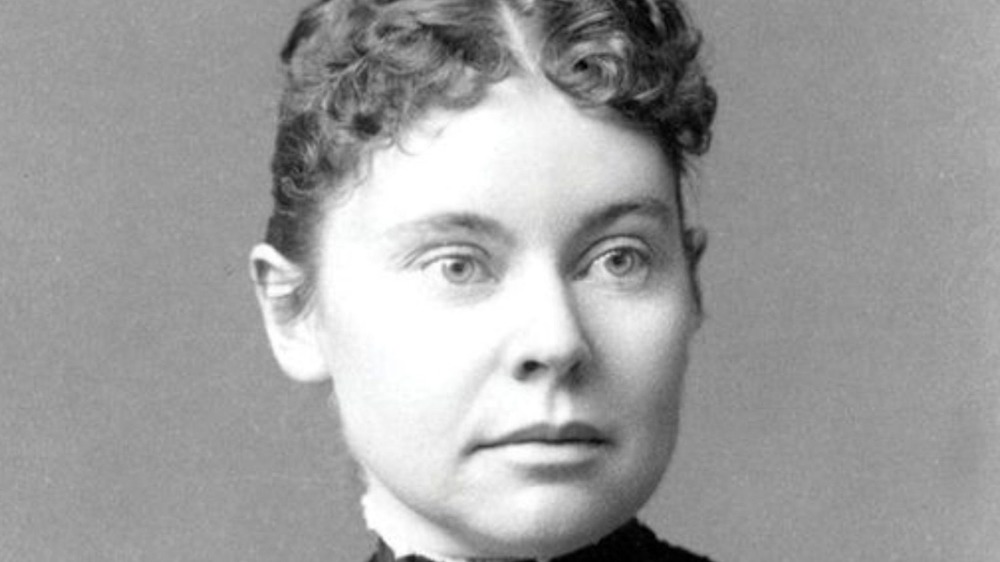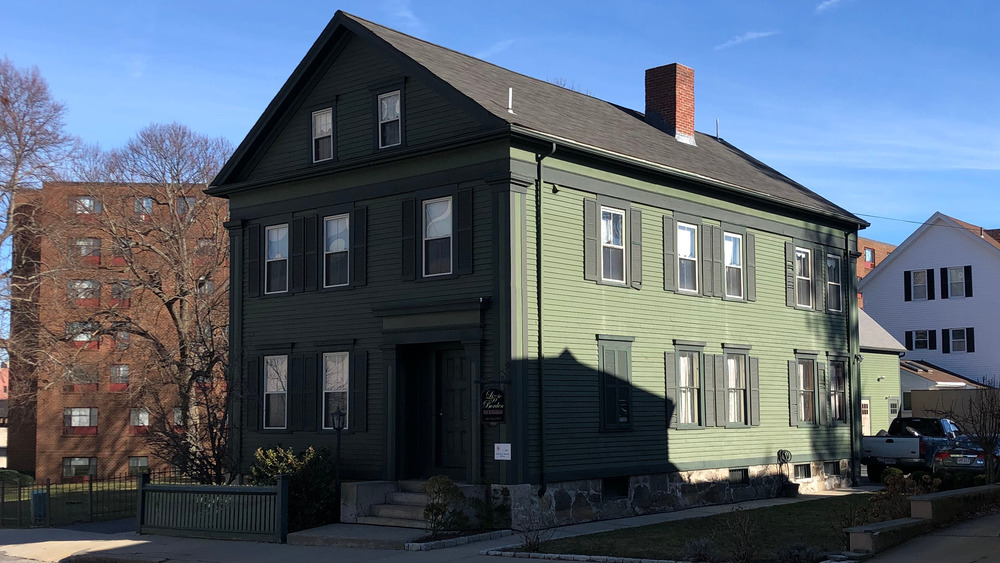The Bizarre Theories Surrounding Lizzie Borden's Alleged Murders
Almost 100 years after her death, Lizzie Borden remains an object of fascination — not for what she did, but for what a jury said she didn't do in 1892. Lizzie was arrested, tried, and acquitted of the murders of her father and stepmother.
As a brief refresher: Lizzie was the unmarried daughter of a wealthy Fall River, Massachusetts, businessman. On August 4, 1892, Lizzie's father and stepmother were found brutally murdered in their house and Lizzie was accused. Popular opinion was so strongly convinced of her guilt that (per Smithsonian Magazine) a popular children's rhyme referenced the crime. ("Lizzie Borden took an axe," and so forth.)
Lizzie had at least one motive for the killings. She reportedly longed for a fancier lifestyle that was denied by her wealthy father, who was known to be a little tight-fisted, and was allegedly enraged after he purchased a house for his sister-in-law.
Historian Marcia Carlisle wrote in American Heritage that Lizzie may have been the victim of sexual abuse, due to the correlation between patricide and incest. Carlisle also pointed to Lizzie's possible poor mental health – "I feel depressed ... as if something was [sic] hanging over me that I cannot throw off, and it comes over me at times, no matter where I am," Lizzie told a friend the day before the murders. The 1967 book A Private Disgrace theorized that Lizzie suffered from epilepsy and committed the murders while in a fugue state, according to Vulture in a review of the 2018 film Lizzie.
More and more historians are providing other possible solutions to the crime
According to KQED, a nurse who treated Lizzie said that Lizzie had confessed that her boyfriend committed the murders because her father disapproved of the match. The boyfriend's identity remains a mystery.
Others have suggested that Lizzie and Bridget, the Bordens' maid, conspired to commit the murders together, either because of a romantic relationship between the pair or a mutual dislike of the older Bordens. Bridget appeared to know or at least suspect that Lizzie's stepmother was dead before the discovery of the body, as she refused to go upstairs to Mrs. Borden's bedroom to tell her about Mr. Borden's death. When a neighbor went to get a sheet to cover Mr. Borden's body, Bridget reportedly said, "we'll need two," even though Mrs. Borden's body had not yet been found (per The Straight Dope, in 2001).
Other family members could have committed the crimes. In his 1992 book Lizzie Borden: The Legend, the Truth, the Final Chapter, author Arnold Brown suggested that Lizzie had an illegitimate and "mentally defective" brother who committed the crimes. Brown theorized that Lizzie had covered up for her half-sibling to conceal his existence.
Lastly, Lizzie's uncle, John V. Morse, may have been the culprit, according to the book Cold Case to Case Closed. Morse had been staying with the family but was dismissed as a suspect because of an alibi that was later disproved. Moreover, the uncle was a butcher who always carried a cleaver, which is coincidentally a very handy murder weapon.

